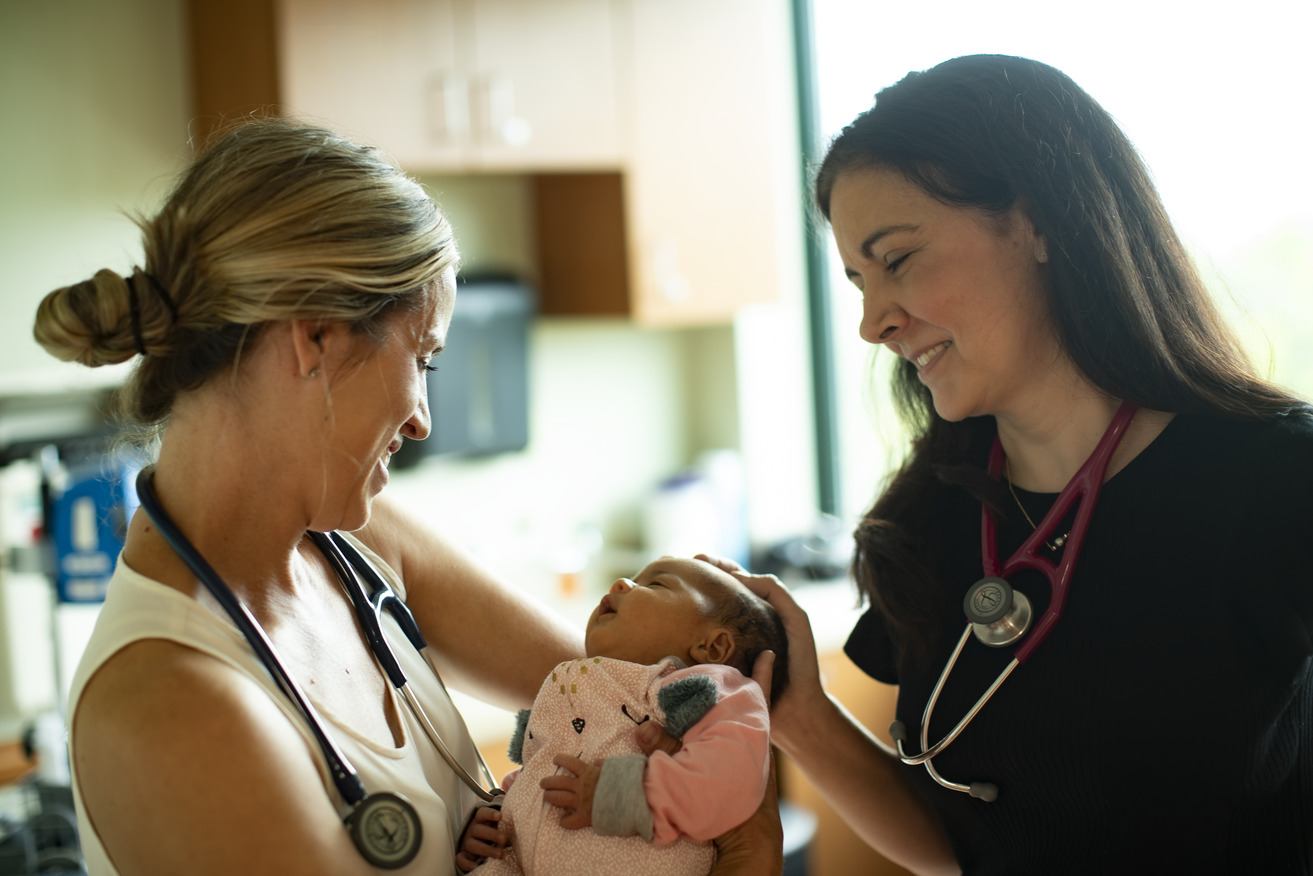When a new immunization to protect newborns from respiratory syncytial virus (RSV) became available in late 2023, pediatricians at Temple University Hospital noted an unusually strong early interest from parents.
That enthusiasm stood in clear contrast to the hesitation many of the same families expressed toward the COVID-19 and influenza vaccines. A new study published in BMC Pediatrics by researchers from Temple University’s Lewis Katz School of Medicine reveals why parents saw RSV as a more immediate and severe threat to their infants.
Their choice to immunize their newborns was driven primarily by trust in their pediatricians’ recommendations.
The findings highlight a powerful combination: parents’ instinct to protect their newborns and the critical importance of doctors building meaningful, transparent relationships with families—enough to overcome the doubts that undermined other vaccines.
RSV concerns outweigh doubts
“Parents consistently told us they wanted to do everything possible to protect their babies from RSV, which they see as a serious and frightening illness,” said Brittany Hansen, associate professor of clinical pediatrics and study co-author. “By contrast, many felt the COVID-19 and flu vaccines weren’t effective, since they knew people who got vaccinated and still got sick.”
According to the Centers for Disease Control and Prevention, RSV is the leading cause of hospitalization among infants, putting tens of thousands of children in the U.S. in the hospital each year. The new preventive option, Beyfortus (nirsevimab), protects infants through their first RSV season with a single injection of antibodies. Unlike older RSV preventives, which were only available to high-risk infants, the 2023 immunization opened access to nearly all newborns.
How trust shapes action
The timing was unique. Within just a few years, parents faced two newly available preventive treatments for their children: one for COVID-19 and one for RSV.
“It’s probably the only time in our careers we’ll see two brand-new immunizations introduced so close together,” said Julia Burger, associate professor of clinical pediatrics and study co-author. “Parents’ reactions to them were like night and day, and we wanted to understand why.”
To do that, the Temple team interviewed 25 parents whose newborns received the RSV immunization during its first season of availability. The team also included Brian Tuohy, assistant professor of urban health and population science, and medical student Joshua Somers.
The researchers expected social media and political views to shape parents’ choices. Instead, trust in pediatricians turned out to be the decisive factor.
“We went into this thinking social media was driving the decision, but that wasn’t what we found,” Hansen said. “Over and over, parents told us: ‘My provider recommended it.’ That trust in their doctor was the main reason.”
Somers, who conducted many of the interviews, said that process revealed just how much parents wanted to put faith in the healthcare system, even when they had broader doubts.
“Building rapport and relationships with patients is where trust is generated,” Somers said. “I learned to let conversations breathe—even to sit with silence—because parents often shared their most thoughtful insights in those moments. It showed me how much people want to trust, if you give them the space.”
Tuohy, a sociologist, played a pivotal role by pushing the team to challenge their assumptions. Somers recalled how Tuohy often encouraged the group to slow down and ask foundational questions that shaped the study’s design.
Misunderstanding what “success” means
The study also revealed that many families misunderstood how immunizations work. Some equated success with complete protection—never catching the virus—and questioned the value of flu or COVID-19 shots when vaccinated people still became ill.
“An immunization can still be successful if it keeps your child out of the hospital, even if they do get the illness,” Burger explained. “Helping families reframe what immunization success looks like could improve uptake beyond RSV.”
Looking ahead
For Burger and Hansen, who have spent years caring for families in North Philadelphia, the study reinforced the importance of long-term provider relationships in pediatric care.
“These conversations are so much easier when you know the family and they know you,” Hansen said. “Parents understand that your recommendations are about helping their child thrive.”
The team hopes to build on this work by studying families who decline immunizations, to better understand both “yes” and “no” decision-making.
“At a time when trust in medicine is sometimes strained, this research was encouraging,” Burger said. “It shows that parents still trust their doctors and that trust can make all the difference.”

